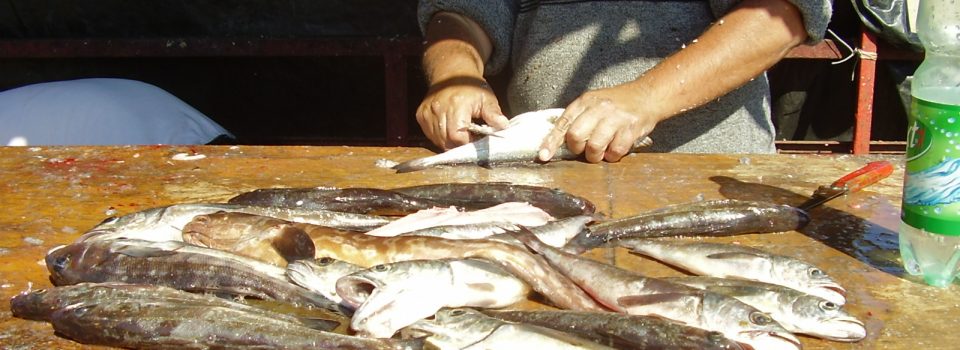IFOP refers to monitoring study of common hake fishery
September 5th, 2016
Common Hake
Have quality technical antecedents on the performance of fishery and hake resource conditions are very important when recommending management measures that favor stock recovery.
Patricio Galvez, researcher of IFOP and head of project “Demersal and deep water fisheries monitoring” referred to the study that monitors extraction activities, artisanal and industrial activities, guiding efforts to catch bottom fish species, such as, common hake, deep codfish, golden conger and others.
The professional pointed out that in the group of hakes, an emblematic resource is the common hake, which is exploited by artisanal and industrial vessels from central south regions of the country, being this a relevant activity from social and economical point of view, for regions V, VI, VII and VIII. For these activities, the monitoring program has a group of scientific observers who collect data and information from fishing operations, carrying out biological samples also, which allow to have a history of catching sizes, proportion of juveniles and sexual maturity conditions of the fish caught, among others.
These data allow building useful indicators for fisheries management and providing baseline history to establish the status of the resource, under the framework of the Scientific Technical Committees of Subsecretaría de Pesca y Acuicultura. Depending on the results of the project, the marine biologist of IFOP said that “… the specie is still in a weakened condition, characterized by a population structure mainly composed of juveniles, considering (under normal conditions) an average size of sexual maturity of 37 cm … “, which is consistent with the results of independent studies of the fishery, such as hydro acoustic cruise evaluation carried out by same IFOP onboard M/V Abate Molina.
Leonardo Nunez, CEO of IFOP, said the Institute is committed to improve the quality and timeliness of the information generated by fisheries research, in order to meet the local research in its advisory role to the national fisheries administration; therefore, to have technical quality information on the performance of the fishery and hake resource conditions are important for recommending management measures that favor the recovery of the stock “.
When asked about the implementation of management measures to facilitate the recovery, he said “certainly the effective application of biological closure of hake, to facilitate the entry of juveniles and thereby renewing the stock, is very effective”
